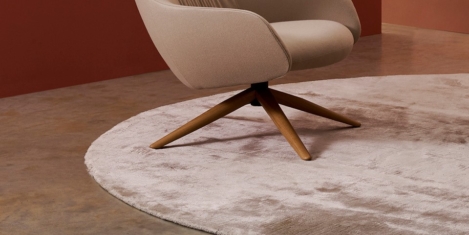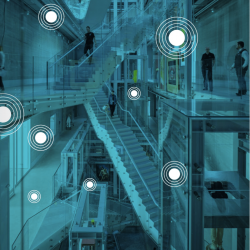To provide the best experiences, we use technologies like cookies to store and/or access device information. Consenting to these technologies will allow us to process data such as browsing behaviour or unique IDs on this site. Not consenting or withdrawing consent, may adversely affect certain features and functions.
The technical storage or access is strictly necessary for the legitimate purpose of enabling the use of a specific service explicitly requested by the subscriber or user, or for the sole purpose of carrying out the transmission of a communication over an electronic communications network.
The technical storage or access is necessary for the legitimate purpose of storing preferences that are not requested by the subscriber or user.
The technical storage or access that is used exclusively for statistical purposes.
The technical storage or access that is used exclusively for anonymous statistical purposes. Without a subpoena, voluntary compliance on the part of your Internet Service Provider, or additional records from a third party, information stored or retrieved for this purpose alone cannot usually be used to identify you.
The technical storage or access is required to create user profiles to send advertising, or to track the user on a website or across several websites for similar marketing purposes.
 A survey of 3,000 employees across the United States has shed light on the extent to which workers are concerned about the growth of artificial intelligence (AI) and its impact on their job security. The research, carried out by FreelanceWritingJobs.com, claims that just over 1 in 3 (35 percent) Americans are worried about the possibility of AI making their professions redundant. (more…)
A survey of 3,000 employees across the United States has shed light on the extent to which workers are concerned about the growth of artificial intelligence (AI) and its impact on their job security. The research, carried out by FreelanceWritingJobs.com, claims that just over 1 in 3 (35 percent) Americans are worried about the possibility of AI making their professions redundant. (more…)






 One in four (23 percent) UK office workers plan to take advantage of remote working to log on from abroad in 2023, with a third (32 percent) doing so against company rules, according to new research by the risk management and insurance broker, Gallagher. The survey of more than 2,000 UK office workers claims that the dramatic increase in hybrid working post pandemic now extends to a “work from anywhere” culture. But employees choosing to locate themselves overseas brings risk implications for their employer, as well as themselves.
One in four (23 percent) UK office workers plan to take advantage of remote working to log on from abroad in 2023, with a third (32 percent) doing so against company rules, according to new research by the risk management and insurance broker, Gallagher. The survey of more than 2,000 UK office workers claims that the dramatic increase in hybrid working post pandemic now extends to a “work from anywhere” culture. But employees choosing to locate themselves overseas brings risk implications for their employer, as well as themselves. 
 The organisers of NeoCon have announced that the submissions portal for the 2023 edition of the
The organisers of NeoCon have announced that the submissions portal for the 2023 edition of the 


 Any business that is looking to grow its consumer base or expand into new markets is likely to be relying on digital technology to a greater extent than ever before both in their operations and management. This also means that the
Any business that is looking to grow its consumer base or expand into new markets is likely to be relying on digital technology to a greater extent than ever before both in their operations and management. This also means that the 



















March 6, 2023
The six skills managers will need for the future of work
by Lea Kimpele • Comment, Flexible working, Technology